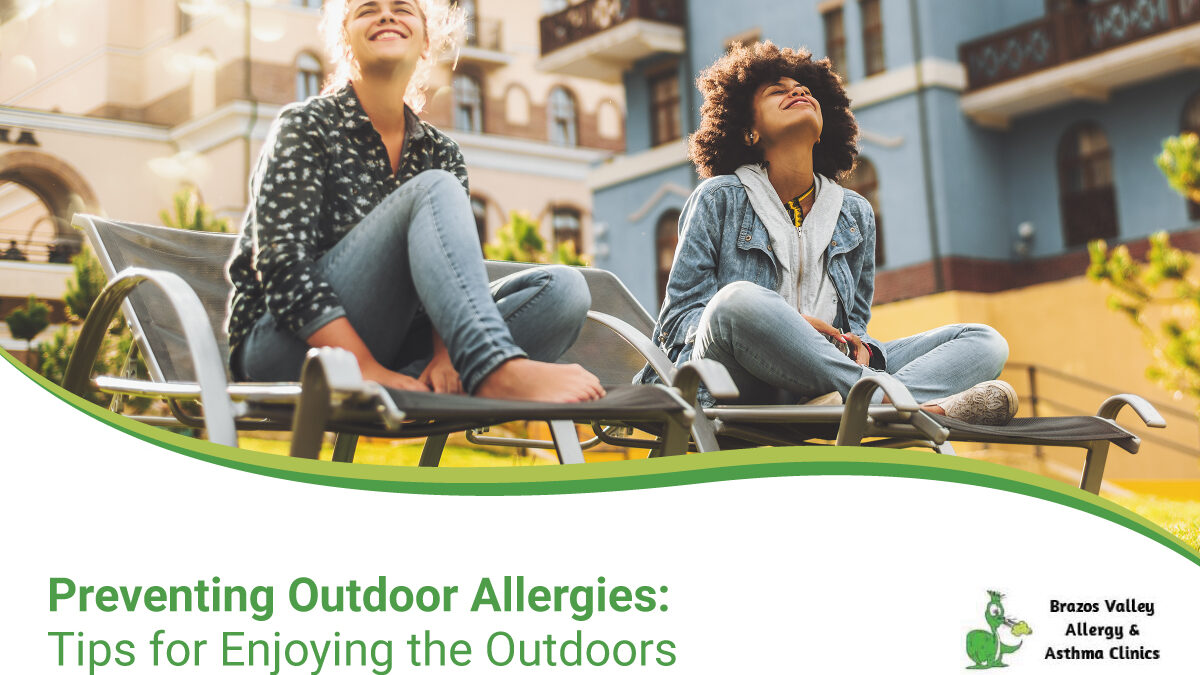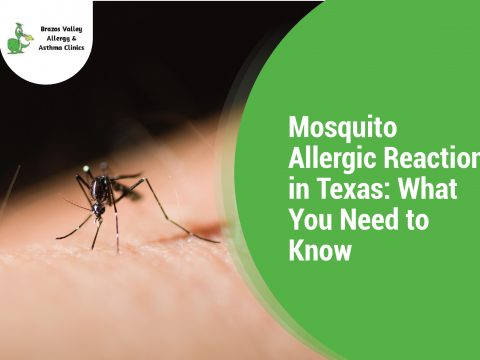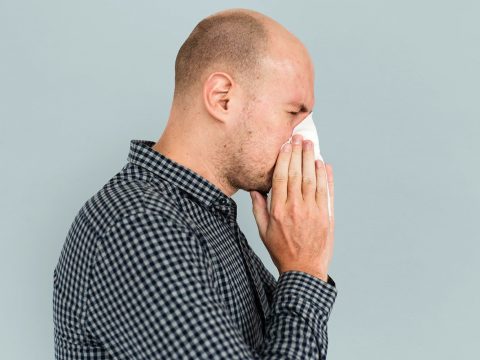- 979-485-9287
- office@bvallergy.com
-
 979-251-7804
979-251-7804
Preventing Outdoor Allergies: Tips for Enjoying the Outdoors

Back-to-School Preparedness: Strategies for Dealing with Food Allergies in Texas
August 1, 2023
Back-to-School Allergies: How to Create an Allergy-Friendly Environment
August 18, 2023Understanding Outdoor Allergens
August is ideal for spending time outdoors, enjoying the warm weather, and participating in various activities with your loved ones. However, this is a challenging month if you have outdoor allergies.
Pollen, mold spores, and other allergens cause discomfort and hinder your ability to enjoy the great outdoors fully. Various types of pollen trigger allergic reactions, as reported by the Asthma Allergy Foundation of America.
This article will provide essential allergy tips for preventing common outdoor allergies, so you and your loved ones can make the most of your time outdoors without worrying about allergies.
Learn Your Allergies
Before taking any preventive measures, it’s crucial to understand your specific allergies. An allergy test can identify the exact allergens that trigger your symptoms. Common outdoor allergens include tree pollen, grass pollen, weed pollen, and mold spores.
The common types of allergy tests are:
The accuracy of these skin tests varies, and their use depends on the allergic reaction’s severity. We recommend consulting with your allergist to get the appropriate test.
You can read additional information about the different types of allergy tests from the National Institutes of Health by clicking this link.
Tips on How to Avoid Pollen Outside
Aside from knowing your allergies and triggers, it’s equally vital to understand how to avoid them. Avoiding triggers is crucial in reducing the risks of an allergic reaction. Remember, prevention is better than cure.
Check Pollen Forecasts
Learn about pollen levels in your area by checking local pollen forecasts. Many weather websites and apps provide this information daily. Knowing the pollen count allows you to plan outdoor activities on days with lower pollen levels.
Time Your Outdoor Activities Wisely
Pollen levels are usually higher in the early morning and late afternoon. Try to plan your outdoor activities during midday when pollen counts are lower.
Wear Appropriate Clothing
When spending time outside, consider wearing a wide-brimmed hat and sunglasses to protect your face from pollen. Additionally, wearing a mask can help filter out airborne allergens.
Shower and Change Clothes
After spending time outdoors, take a shower to wash off any pollen that may be on your body and hair. Also, change your clothes to prevent pollen from being transferred to indoor spaces.
Limit Outdoor Activities on Windy Days
Wind can carry pollen and mold spores over long distances, increasing exposure. On windy days, consider indoor activities or stay in areas with less vegetation.
Keep Windows and Doors Closed
During high pollen days, ensure to close your windows and doors. This technique prevents allergens from entering your home. Use air conditioning with a HEPA filter to maintain a pollen-free indoor environment.
Maintain Your Yard
Keep your yard well-maintained to minimize the presence of outdoor allergens. Mow the lawn regularly, remove weeds, and trim bushes to reduce pollen levels around your home.
Opt for Allergy-Friendly Plants
If you enjoy gardening, choose plants less likely to trigger allergies, such as begonias, geraniums, or daffodils. These plants have showy flowers and minimal pollen production.
Avoid Irritants
Cigarette smoke and strong odors exacerbate outdoor allergy symptoms. Avoid exposure to these irritants whenever possible.
Avoid Hanging Laundry Outside
When pollen levels are high, avoid hanging laundry outside as it can pick up allergens and transfer them indoors.
Keep Car Windows Closed
When driving during allergy season, keep car windows closed and use the air conditioning to filter out allergens.
Outdoor Allergy Remedies and Treatment Options
There are tons of home remedies and treatment options for outdoor allergies. Although allergies are challenging to avoid, they are highly treatable and manageable.
Standard treatment options and remedies:
Consult an Allergist
Consider consulting an allergist if your outdoor allergies significantly impact your daily life. They can provide personalized advice, perform allergy testing, and recommend suitable treatment options.
Consider Nasal Irrigation
Nasal irrigation using a saline solution can help flush out allergens from your nasal passages, relieving allergy symptoms. Consult with your allergist to learn how to perform nasal irrigation correctly.
Use Allergy Medications
Over-the-counter antihistamines and nasal corticosteroid sprays can provide temporary relief from allergy symptoms. Talk to your allergist about prescription medications or allergy shots if you have severe allergies.
Stay Hydrated
Drinking plenty of water helps thin mucus and reduce congestion, relieving allergy symptoms.
Management Tips
Now that you understand what allergies are, their treatment options, and how to avoid them, let’s focus on controlling them.
Keep Pets Clean
Pets can bring outdoor allergens indoors, so keeping them clean is essential. Always bathe and groom your pets to reduce allergens in your home. Moreover, it eliminates pet dander, which may trigger an allergic reaction.
Use High-Efficiency Vacuum Cleaners
Invest in a high-efficiency vacuum cleaner with a HEPA filter to reduce indoor allergens. Regularly vacuum carpets, rugs, and upholstery to remove pollen and other allergens.
Regularly Clean Air Filters
Clean or replace air filters in your home’s HVAC system to maintain indoor air quality.
Reduce Indoor Humidity
Using a dehumidifier can help control indoor humidity levels, reducing the growth of mold and dust mites.
Monitor Indoor Plants
Indoor plants can sometimes harbor mold spores. Keep an eye on them and make sure they are clean and healthy.
Create a Pollen-Free Entryway
Designate an entryway where you can remove shoes and outerwear to prevent bringing pollen and allergens further into your home.
Frequently Asked Questions (FAQs)
Q1: Can outdoor allergies lead to other health problems?
In some cases, untreated outdoor allergies can exacerbate asthma or sinus infections. Managing allergies can help prevent such complications.
Q2: Can climate change affect outdoor allergies?
Climate change can influence pollen production, making allergy seasons more prolonged and severe in certain regions.
Q3: Are over-the-counter allergy medications safe for children?
Over-the-counter allergy medications are safe for children, but it’s best to consult a pediatrician for appropriate dosages and options.
Q4: Can stress worsen outdoor allergy symptoms?
Stress can weaken the immune system, making allergy symptoms more pronounced. Practicing stress-reduction techniques may help alleviate symptoms.
Q5: Is there any specific exercise (outside) recommended for individuals with outdoor allergies?
Engaging in low-intensity outdoor exercises like walking or swimming can benefit individuals with outdoor allergies as long as they avoid exercising during peak pollen times.
Enjoy the Outdoors Allergy-Free!
Learning allergy management and prevention tips should allow you to enjoy the beauty of nature and the joys of outdoor activities. Following these tips and taking proactive measures reduces the risks of accidental exposure to allergens and minimizes allergy symptoms. We hope our blog can make August a month of outdoor fun and adventure with your friends and families!
Overcome Outdoor Allergies Like a Boss!
You’re on the right track if you search online for “how to go outside with allergies and allergies outdoors.”
We understand the challenges of dealing with outdoor allergies. That’s why our board-certified allergists in the south-central Texas region, Brazos Valley Allergy & Asthma Clinics are here to help you.
Our services include accurate allergy testing to provide the appropriate treatment and management you deserve for outdoor allergies and similar conditions. We also offer fast scheduling to help you achieve the allergy-free life that you deserve!
Book an appointment today.




